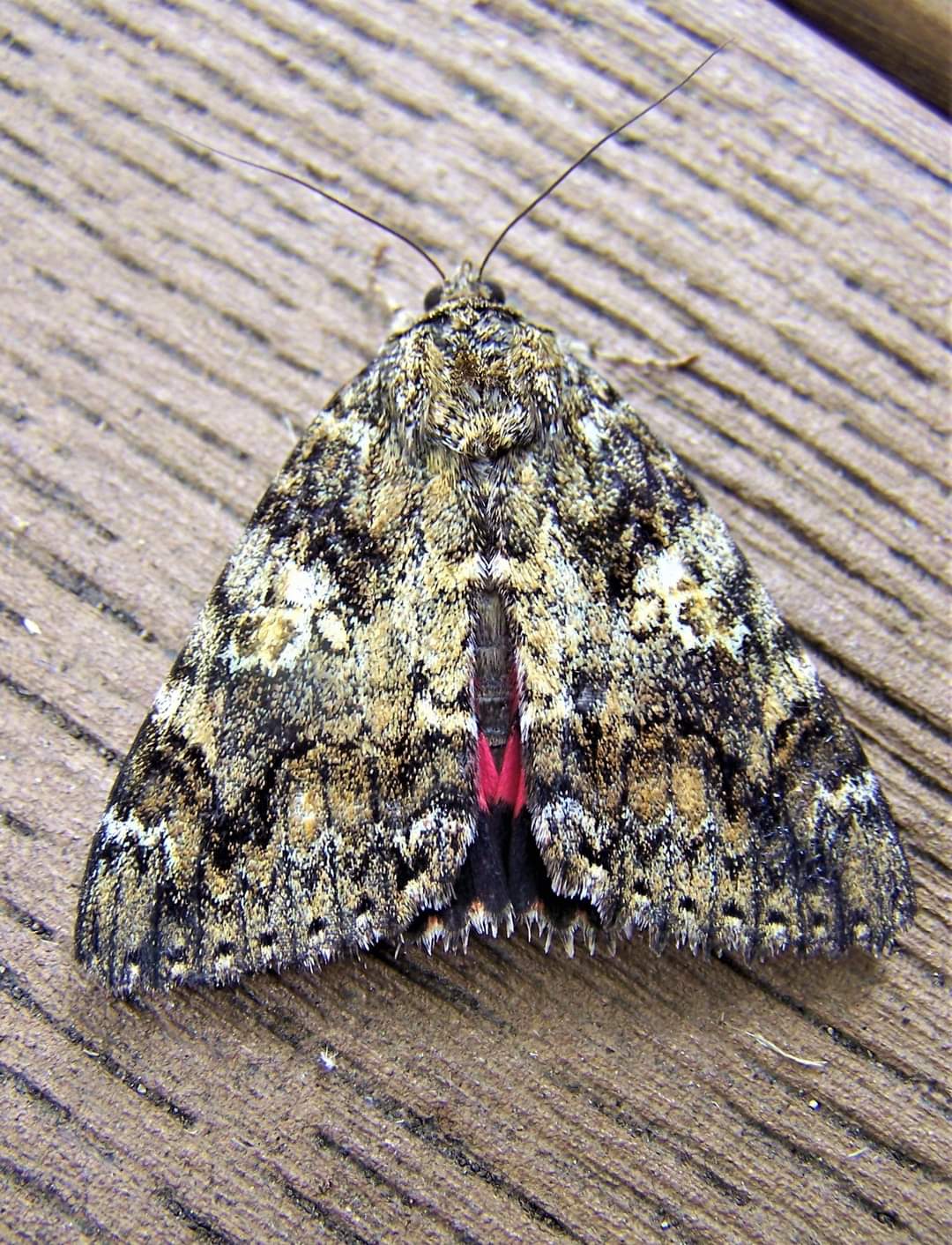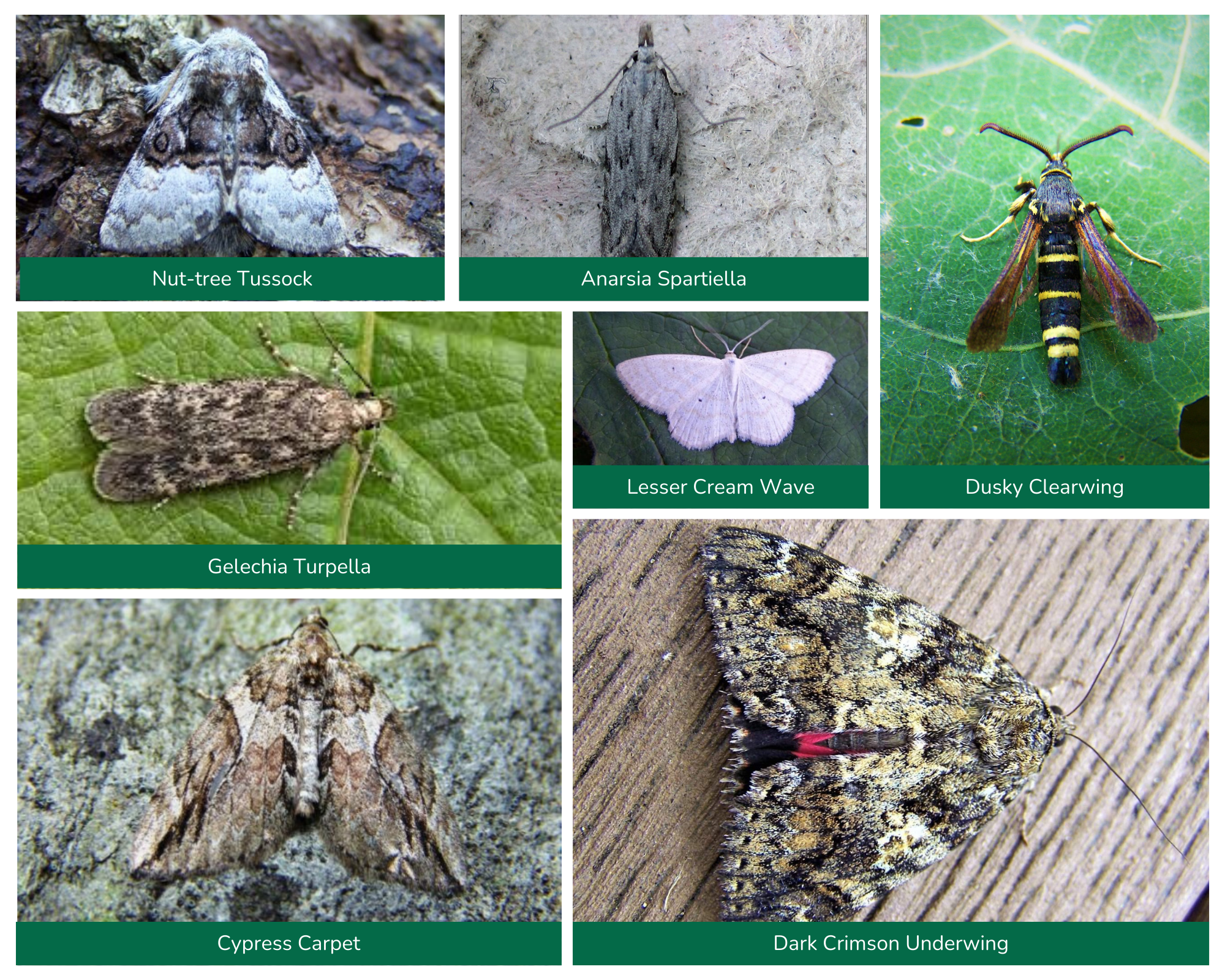Vast variety of moths found at Ryton Pools Country Park highlight biodiversity success

51,868 moths of 650 species were found in 2023 following conservation efforts.
Nestled in the centre of Warwickshire, Ryton Pools Country Park is a much-loved green space enjoyed by visitors of all ages. It’s also an important site for conservation and the promotion of biodiversity and has been the subject of a fascinating moth survey since 2012.
Moths are excellent bioindicators, meaning their presence can provide valuable information about habitat health and environmental change. This on-going survey therefore gives the Warwickshire Country Parks team an idea of the effects of their habitat and conservation work, as well as other factors such as climate change, on biodiversity at the site. The survey has also revealed several exciting and surprising discoveries!
During 2023, an astonishing 51, 868 moths of 650 species were recorded, making it one of the best years on record. The main highlight was the recording of the northernmost modern-day record in the UK of the Dusky Clearwing. This species was thought extinct in the UK since 1924, until an individual was recorded in Warwickshire in 2021. By operating pheromone lure traps during the main adult flight period, a male was recorded on 7 July 2023, representing only the fourth individual of this moth ever seen in Warwickshire.
The positive impact of the team’s decision to maintain and improve stands of the nectar rich shrub Broom, was demonstrated through a promising number of the scarce Light Brocade (Lacanobia w-latinum). With 58 recorded, this species is now undoubtedly breeding on the Broom on-site. Additionally, the scarcely recorded Obscure Snout (Anarsia spaertiella), another Broom-feeding micro (smaller) moth, was recorded for the second year in a row, cementing its breeding credentials at Ryton Pools too.
Other notable macro (larger) moth species seen for the first time in 2023 included the first Lesser Cream Wave (Scopula immutata) seen in Warwickshire for 23 years, records of species currently undergoing range expansion in response to climate change such as Cypress Carpet (Thera cupressata), Nut-tree Tussock (Colocasia coryli) and the impressive Dark Crimson Underwing (Catocala sponsa).
At the other end of the scale, 24 new micro-moths were also uncovered, including only the 3rd sample of the Treble-spot (Telechrysis tripuncta) for Warwickshire and the unusual Poplar Gelechia (Gelechia turpella), the first example of this moth seen in Warwickshire for 123 years!

As well as shaping the management of Ryton Pools with both wildlife and visitors in mind, the moth survey data is entered into the Butterfly Conservation’s National Moth Recording Scheme (NMRS) used to map species distributions. This helps track the effects of climate change on the presence of moths, providing early warnings of warming temperatures.
Analysis carried out in conjunction with Warwickshire County Moth Recorders has revealed the biological importance of Ryton Pools, with the site being among the top for moths in the county.
The work of the team at Ryton Pools was recently commended by the Chair of the Butterfly Conservation Warwickshire. Following a site visit to discuss further collaboration, Volunteer Conservation Officer Mike Slater shared:
“I have to say, what an outstanding team you have. To say that they exceeded my expectations would be a gross underestimation of their exemplary work. The work that they are doing to turn around the county’s (and country’s) bio-diversity loss is well above the norm.”
Councillor Heather Timms, Portfolio Holder for Culture, Climate and Environment at Warwickshire County Council, added:
“Warwickshire County Council’s Country Parks service works tirelessly to make our green spaces the best they can be for both wildlife and visitors. It’s wonderful to see the positive effects of their efforts on biodiversity, and to have these recognised by multiple partner organisations. I look forward to hearing more about their conversation work and habitat creation, and hope there will be many more exciting discoveries as a variety of species is able to flourish!”
Learn more about Ryton Pools Country Park, or sign up to the Warwickshire Country Parks newsletter for regular updates on conservation and wildlife discoveries.



